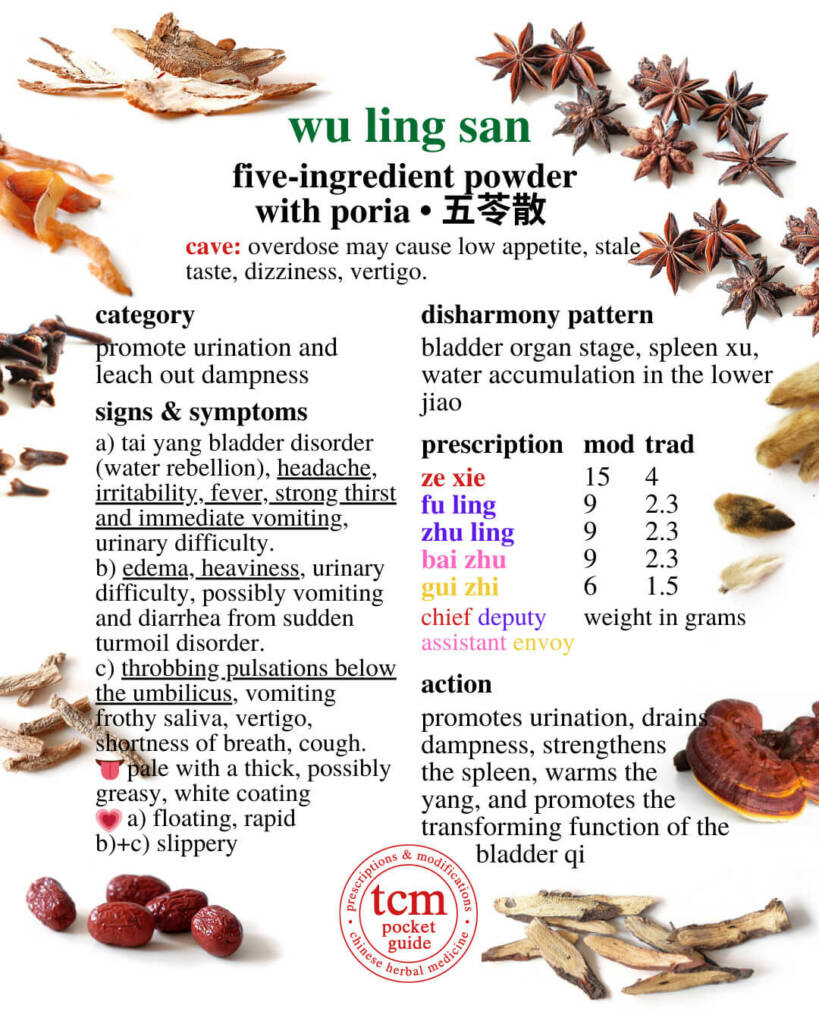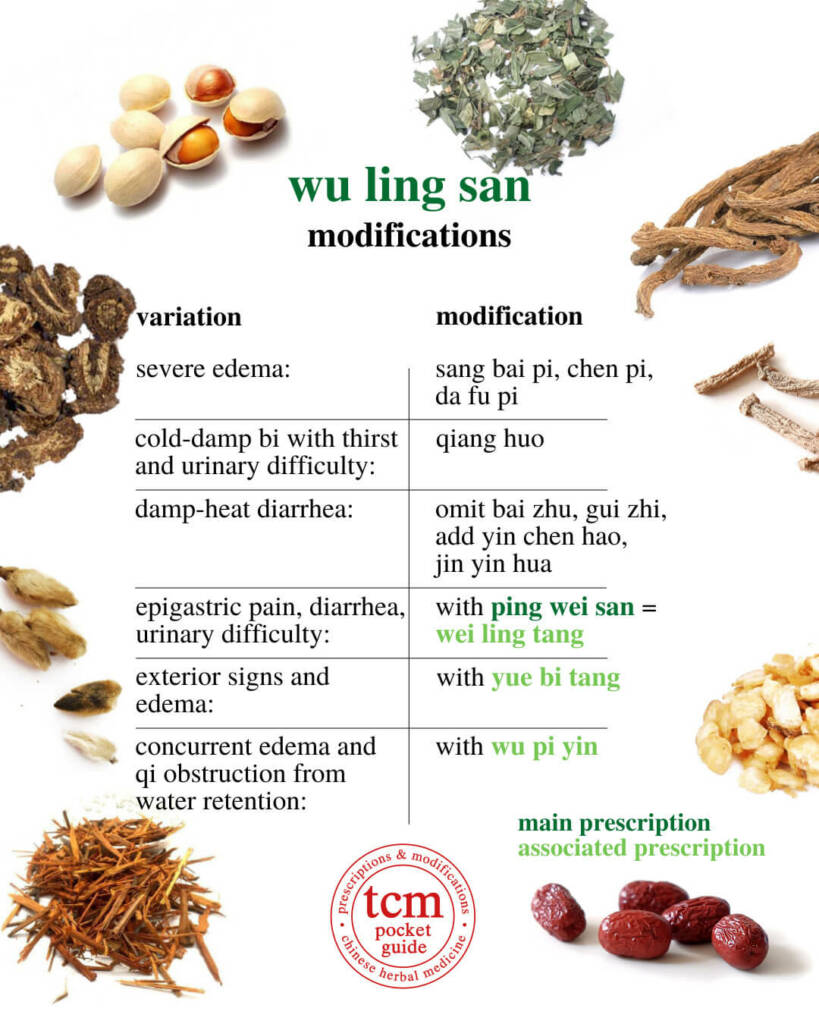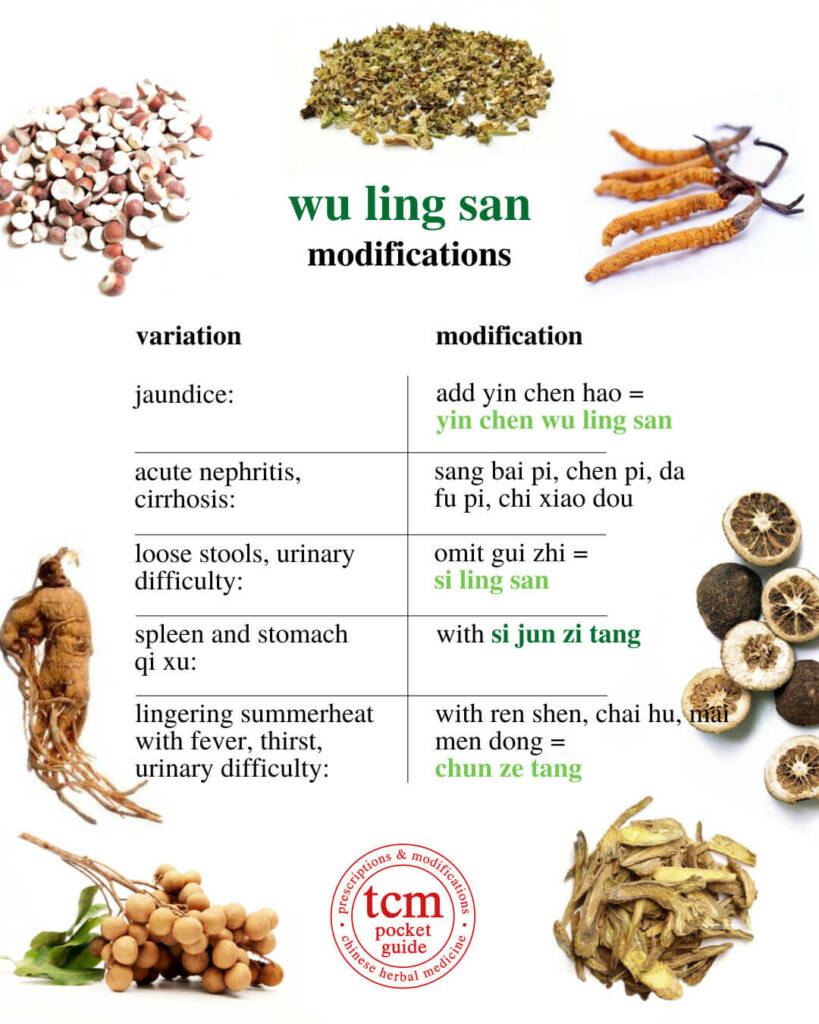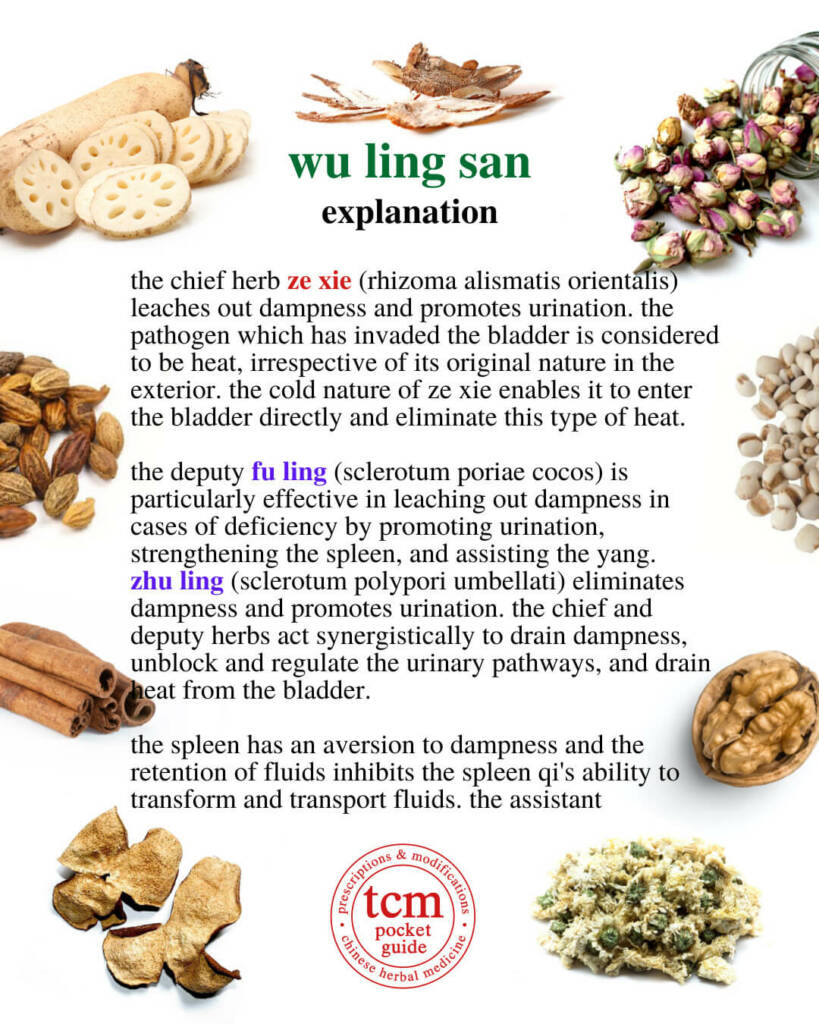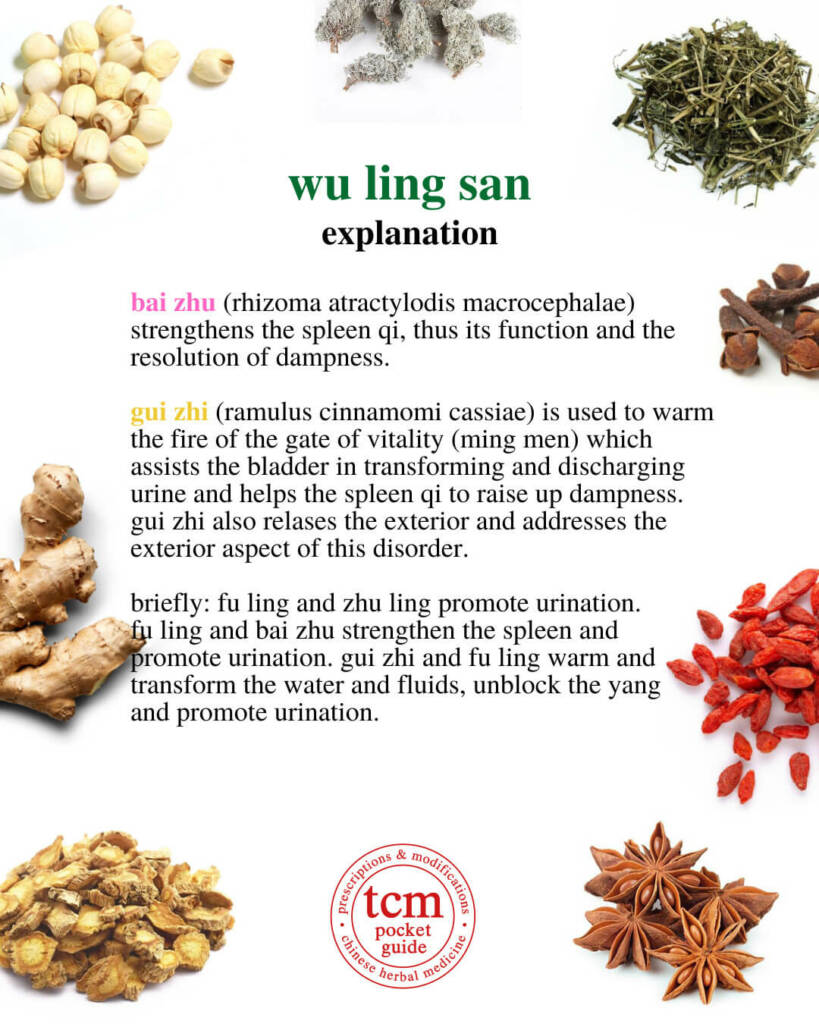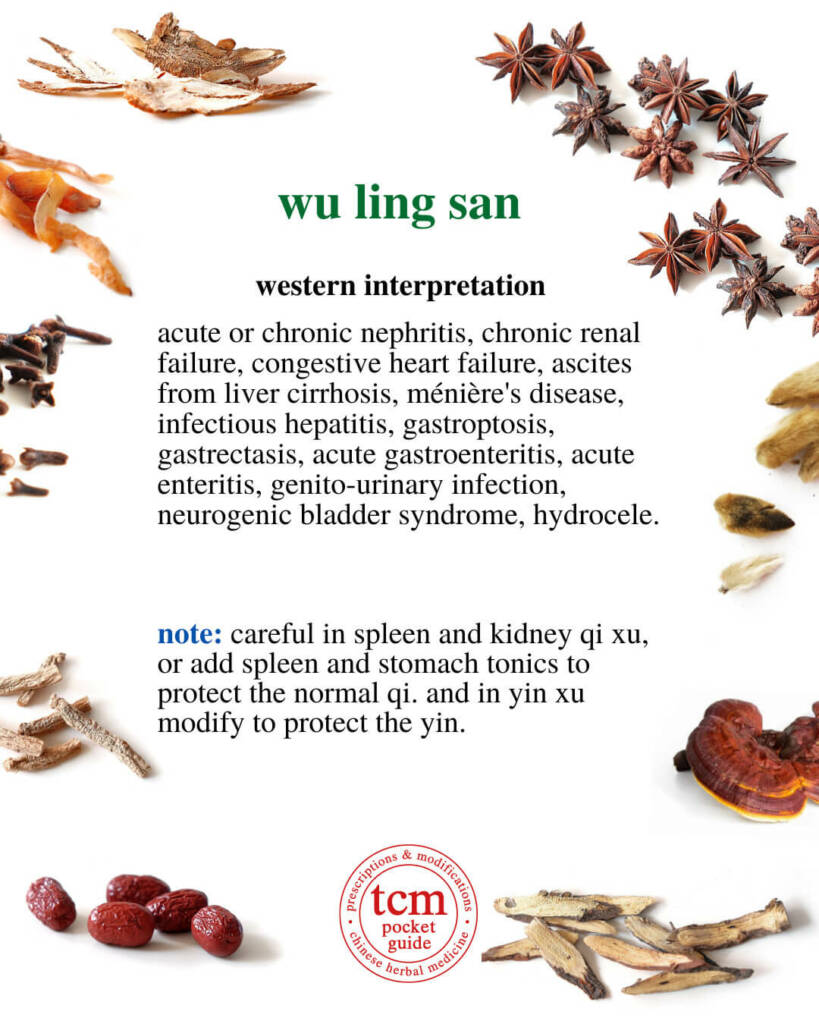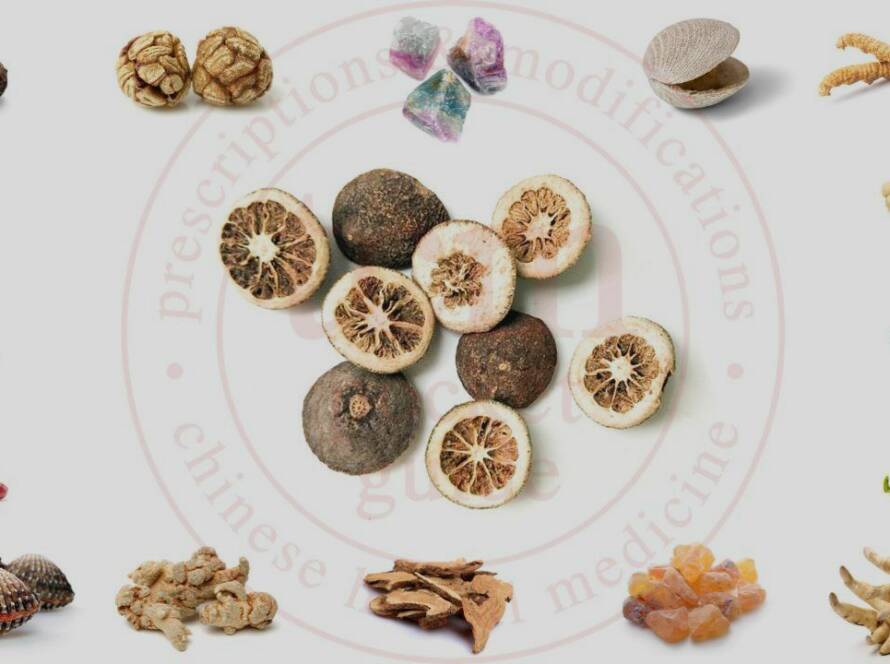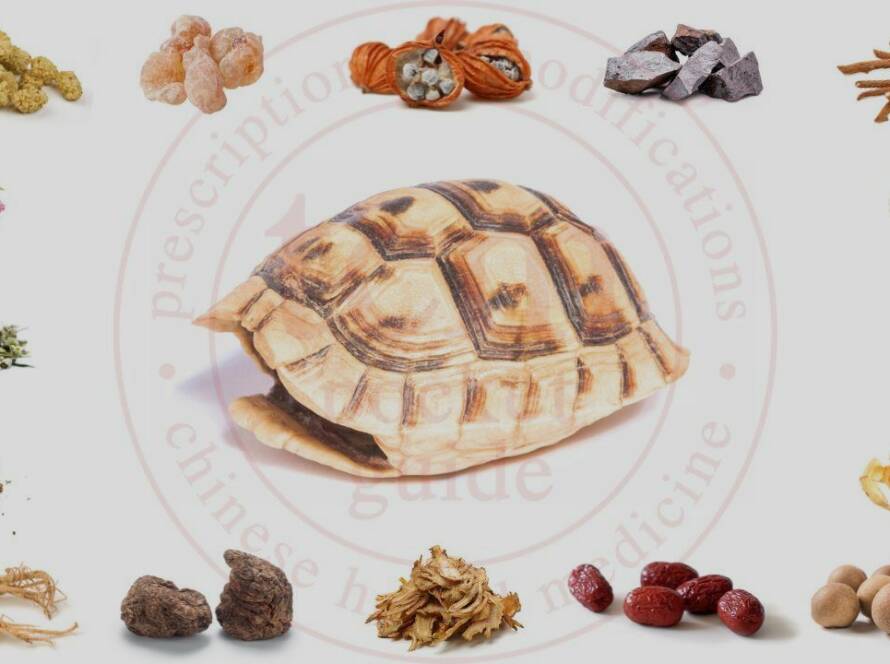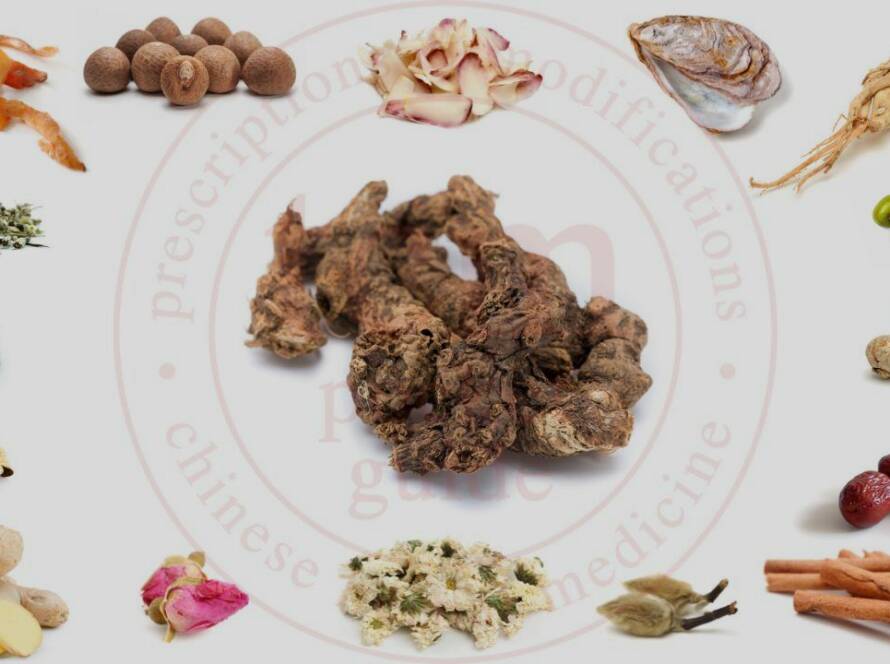wǔ líng sǎn is used for patterns with
bladder organ stage, spleen deficiency, water accumulation in the lower jiao.
symptoms indicating the use of wǔ líng sǎn
a) headache, irritability, fever, strong thirst and immediate vomiting, urinary difficulty.
b) edema, heaviness, urinary difficulty, possibly vomiting and diarrhea from sudden turmoil disorder.
c) throbbing pulsations below the umbilicus, vomiting frothy saliva, vertigo, shortness of breath, cough.
western interpretation of wǔ líng sǎn
acute or chronic nephritis, chronic renal failure, congestive heart failure, ascites from liver cirrhosis, ménière’s disease, infectious hepatitis, gastroptosis, gastrectasis, acute gastroenteritis, acute enteritis, genito-urinary infection, neurogenic bladder syndrome, hydrocele.
explanation of the mechanism
the first group of symptoms a) which are the original indications for this prescription, are manifestations of water buildup, a tai yang disorder in which the pathogenic influences have not been released from the exterior, but have penetrated to the tai yang organ, the bladder.
the headache, fever, irritability and floating pulse indicate an exterior condtition. the pathogenic influences attack and disrupt the functions of the bladder, resulting in urinary difficulty. this also leads to water retention, whick interferes with the upward transportation and downward elimination of fluids. althought this causes strong thirst, fluids cannot be transported downward and are vomited up. this is known as water rebellion disorder.
the second group of symptoms b) refers to a pattern of spleen deficiency which can be described in terms of the five phases as earth failing to transport water. this causes internal accumulation of water and dampness which overflows into the muscles and skin and produces edema and a sensation of heaviness.
because water and dampness are not properly transformed by the spleen and transported to the bladder, there may also be diarrhea and urinary difficulty. the effects of the spleen’s failure to transform and transport water may be felt throughout the triple burner. this is because the spleen serves as a pivot in the water pathways of the triple burner, providing the key link between the upper and lower burners.
in addition to these problems with water metabolism, when the yang of the middle burner is deficient, external pathogenic influences more easily penetrate to the interior. this disrupts the normal function of the stomach and intestines, and thereby prevents the clear yang from ascending and the turbid yin from descending. this gives rise to simultaneous vomiting and diarrhea which are characteristic of sudden turmoil disorders.
the third group of symptoms c) reflects retetntion of congested fluids in the lower burner. this causes a throbbing pulsation below the umbilicus. the stagnation produced by congested fluids leads to an upward rebellion, thus vomiting of frothy saliva. when the ascent of clear yang is obstructed, there is vertigo. if the congested fluids encroach on the lungs, there may also be coughing.
(bensky & barolet)

created with love in switzerland 🇨🇭
feel free to share this content:


